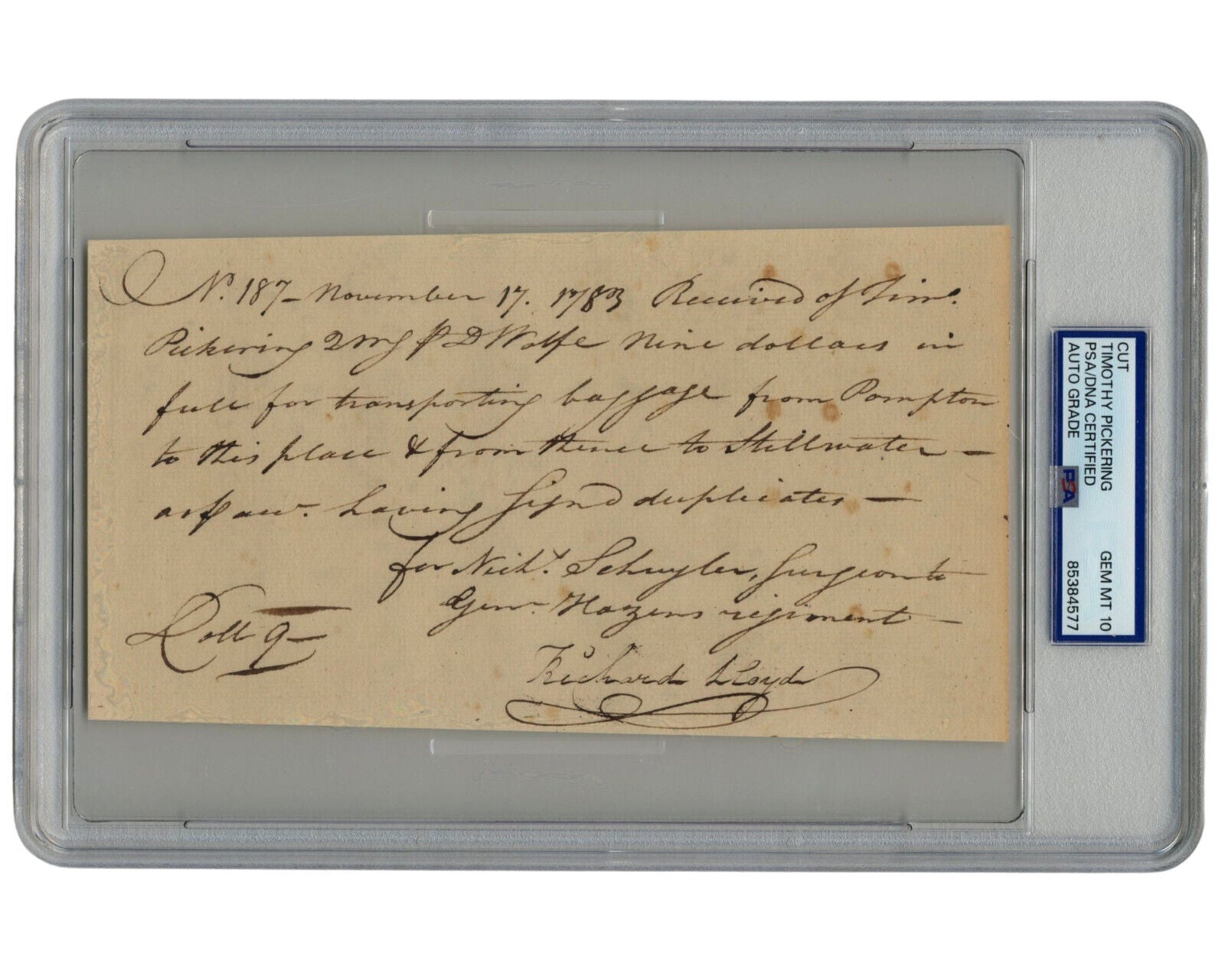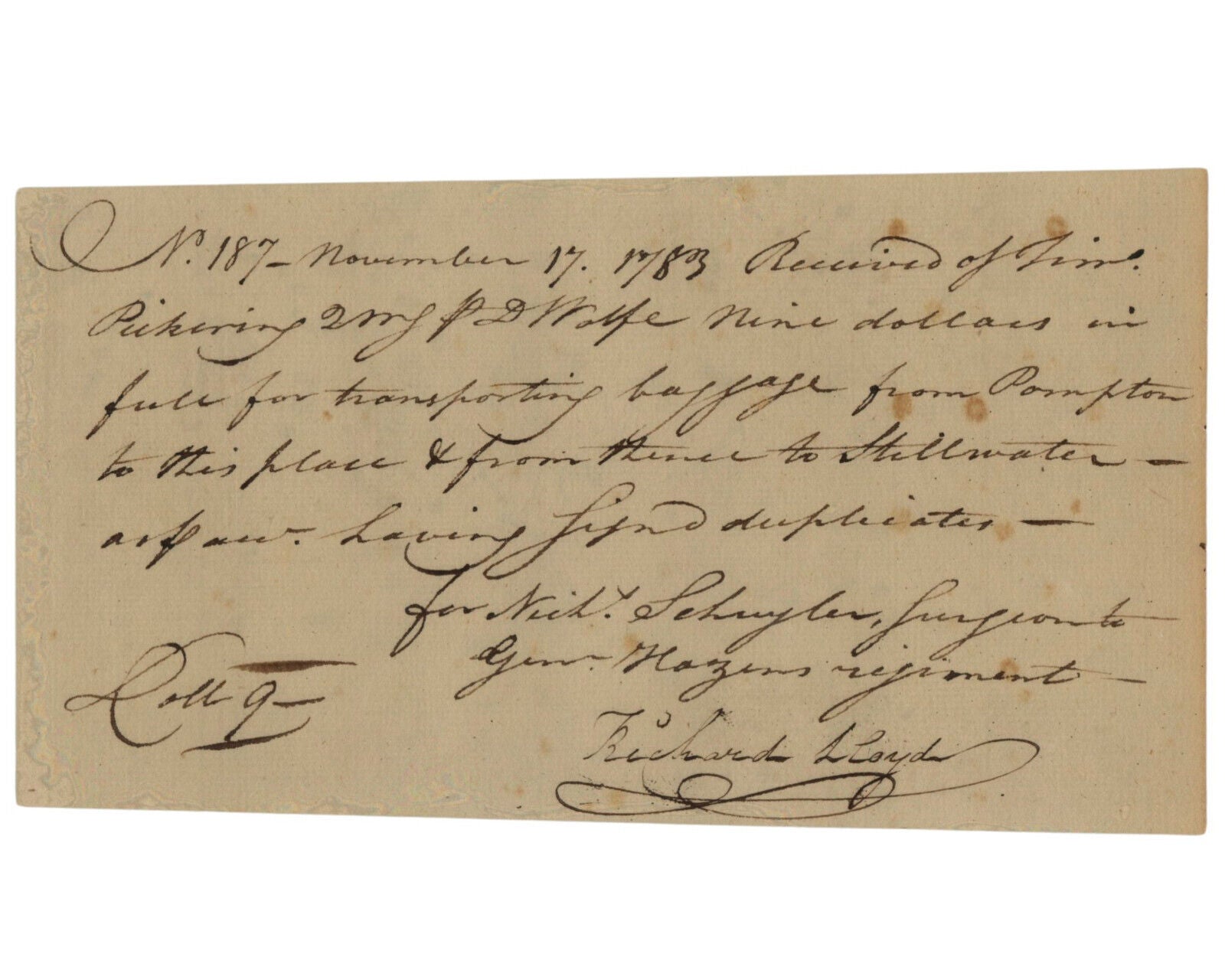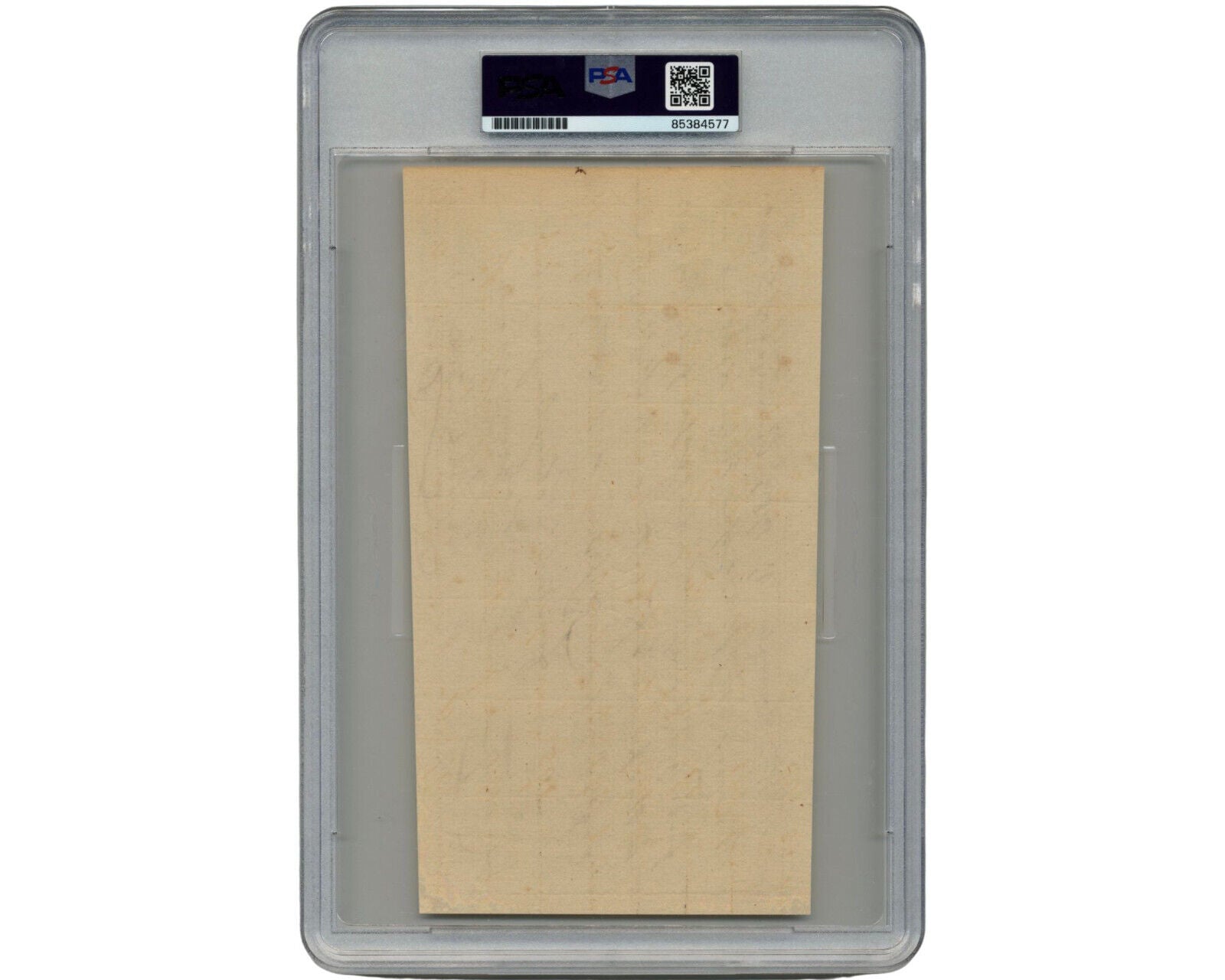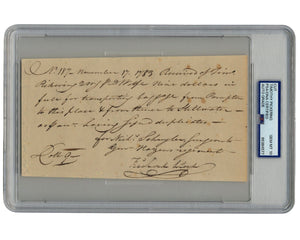Timothy Pickering Moves Military Supplies Days After Brit. Evac. PSA Gem Mint 10
Timothy Pickering Moves Military Supplies Days After Brit. Evac. PSA Gem Mint 10
Couldn't load pickup availability
Revolutionary War Era Receipt Signed by Timothy Pickering – PSA/DNA Certified GEM MT 10
Description:
This historically significant document, dated November 17, 1783, bears the signature of Timothy Pickering (1745–1829), a key figure in the American Revolution and early U.S. government. The receipt records a payment of nine dollars for the transportation of baggage from Pompton to Stillwater and back. The handwritten text details logistical arrangements, an essential aspect of maintaining troop operations during the Revolution’s concluding stages. The document is also signed by Richard Lloyd, attesting to the receipt and payment for services rendered.
The text reads:
No. 187 – November 17, 1783. Received of Tim. Pickering 2nd M[?] & P. D. Wolfe Nine dollars in full for transporting baggage from Pompton to this place & from thence to Stillwater as per having signed duplicates.
For Nich's Schuyler’s Surgeons, Genl Hazen’s Regiment,
Richard Lloyd.
Pickering’s signature is prominently placed and clear, showcasing his role in the administrative and logistical support of military efforts.
What Pickering Was Paying For
The phrase “transporting baggage” typically indicates the movement of supplies, personal gear, or provisions necessary to support troops. Given that it mentions "Col. Schuyler's Surgeons" and "Genl Hazen’s Regiment," this payment was likely connected to ensuring medical or military supplies were delivered to and from these regiments. Such transactions highlight the crucial but often-overlooked logistical work that allowed the Continental Army to function effectively.
Historical Context: Late 1783
- End of the Revolutionary War: By November 1783, the Revolutionary War was effectively over. The British had surrendered at Yorktown in October 1781, and negotiations for peace had culminated in the Treaty of Paris, signed on September 3, 1783. However, troop movements, supply management, and administrative tasks were still ongoing as the Continental Army was demobilized, and British forces were withdrawing from their remaining strongholds.
- Evacuation of New York: On November 25, 1783, just eight days after this receipt was written, the British evacuated New York City, marking the final departure of British troops from American soil. This event, known as Evacuation Day, was a major milestone in the young nation's history.
- Role of Pompton and Stillwater: These locations (in present-day New Jersey) were areas of strategic importance during the war. Pompton was often used for troop movements and supply routes, while Stillwater was a key location in New Jersey's military infrastructure.
Significance of the Payment
This payment reflects the practical realities of sustaining the Continental Army during the transition to peacetime. Even as the war had largely ended, administrative figures like Pickering were still handling transportation, supply distribution, and financial settlements. Ensuring that regiments like General Moses Hazen’s and medical personnel were properly supported was essential to wrapping up the military campaign and preparing for peace.
This receipt provides a window into how even mundane-seeming expenses played a vital role in ensuring the army's smooth operation during this pivotal time in American history.
Authentication and Grading:
This document has been authenticated by PSA/DNA and graded GEM MT 10, ensuring the signature’s superb quality and legibility. The PSA/DNA encapsulation provides tamper-proof protection, with certification number 85384577, further establishing its authenticity and collectible value.
Historical Significance:
Timothy Pickering was a distinguished Revolutionary War officer and statesman. Serving as Quartermaster General of the Continental Army, he managed the critical supply chains and logistics that sustained the war effort. After the Revolution, Pickering held influential positions, including U.S. Secretary of State under Presidents George Washington and John Adams. This receipt, written at the end of the war, highlights his administrative responsibilities and the financial dealings necessary to support American forces.
Collector’s Appeal:
This receipt offers a rare glimpse into the day-to-day operations of the Continental Army and Pickering’s vital role in securing the logistical foundation of America’s fight for independence. With its outstanding grade and clear provenance, this document is a prized artifact for collectors of Revolutionary War memorabilia, offering both historical and aesthetic significance. A tangible connection to the Revolutionary War’s final days, it is an exceptional piece of American history.
Share
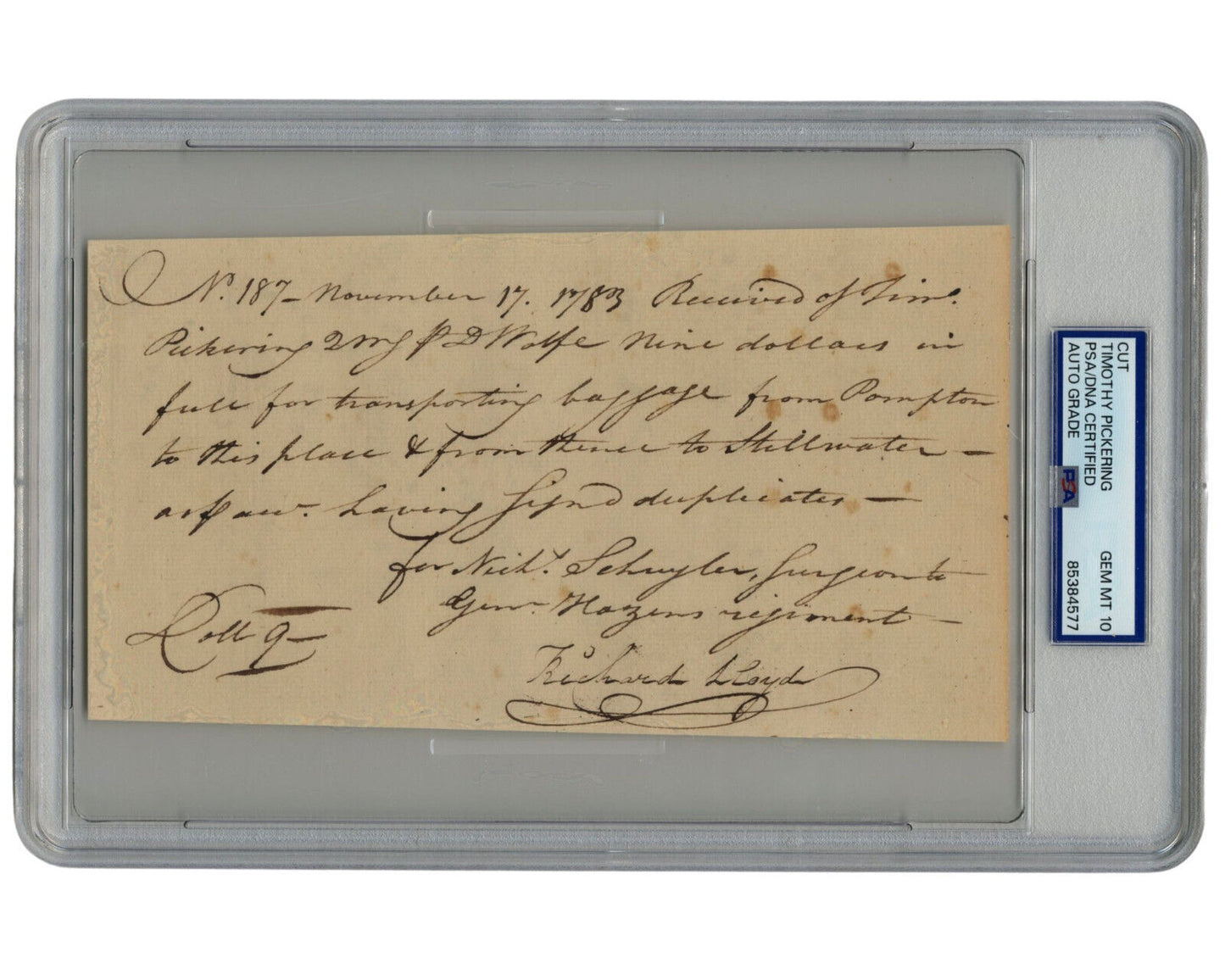
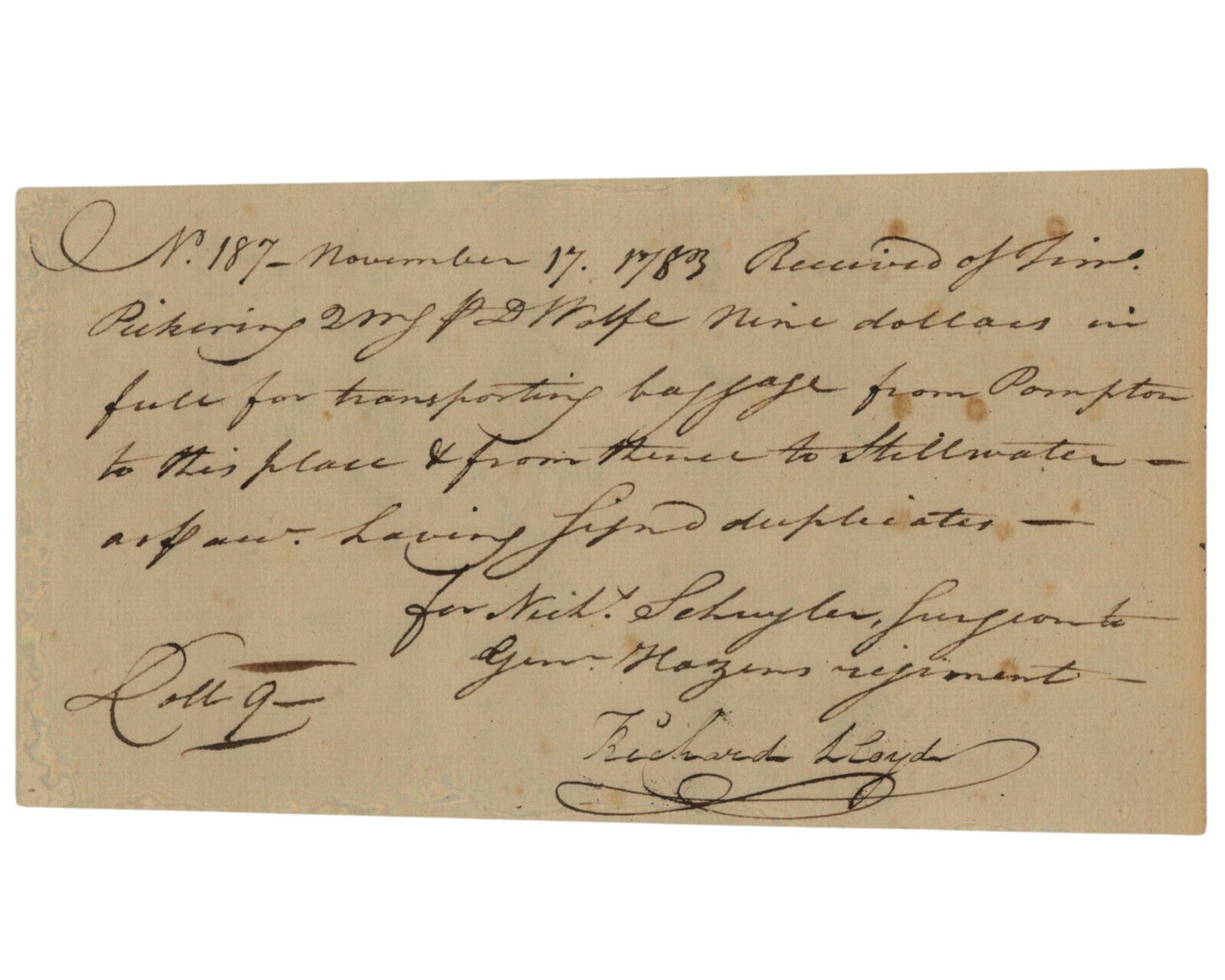
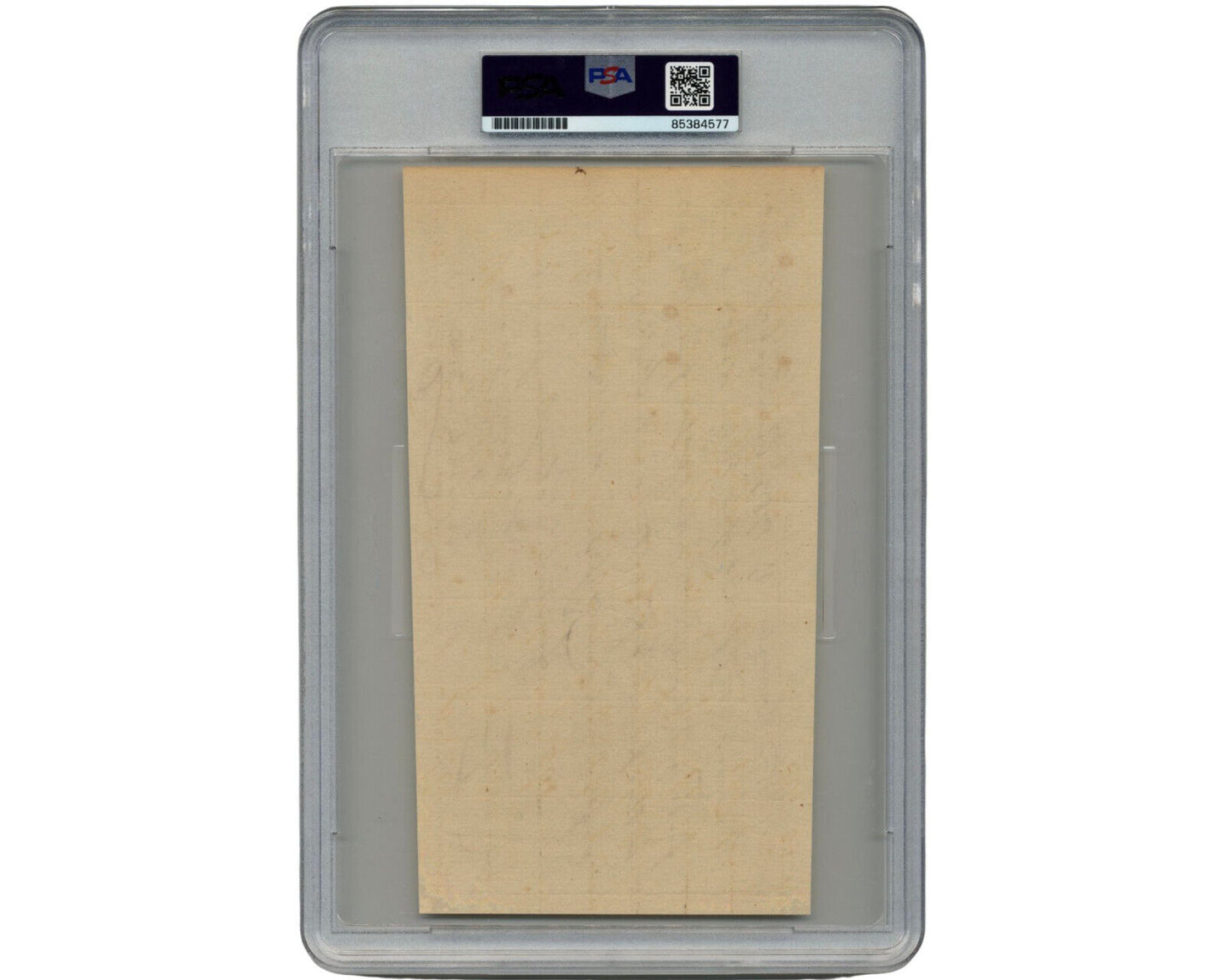
Join Our History Vault!
Be the first to discover rare artifacts, exclusive deals, and stories behind history’s greatest treasures.

